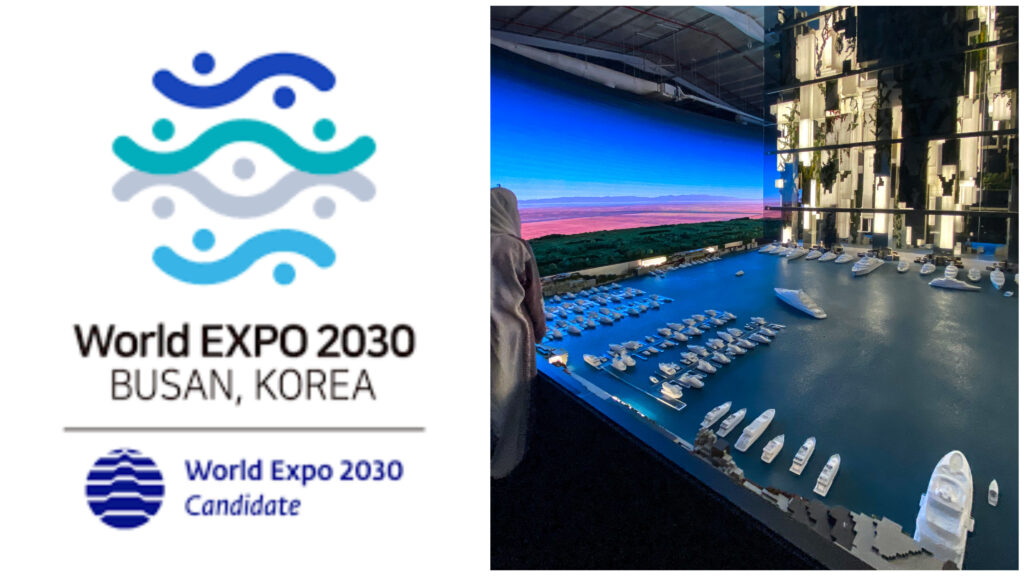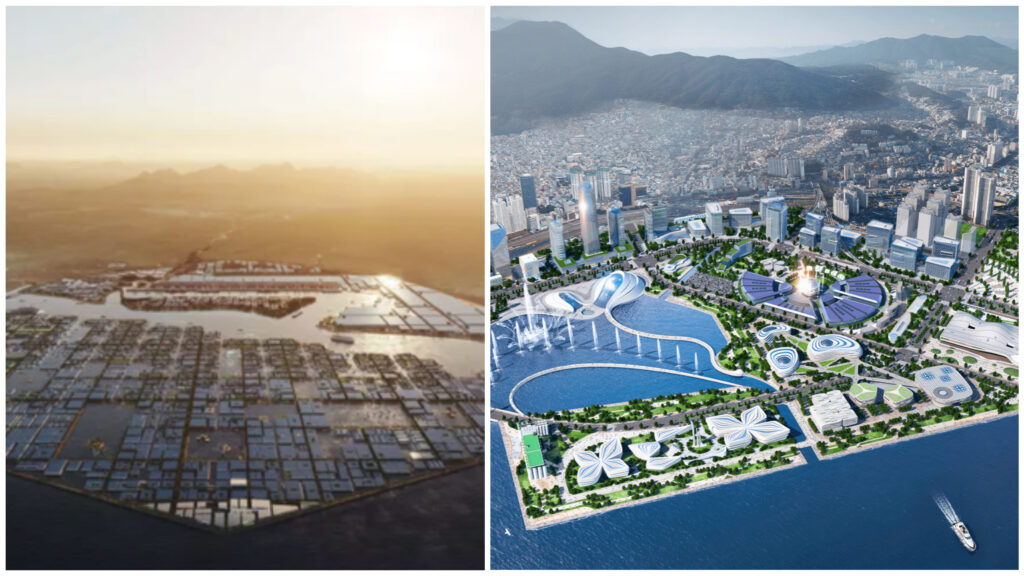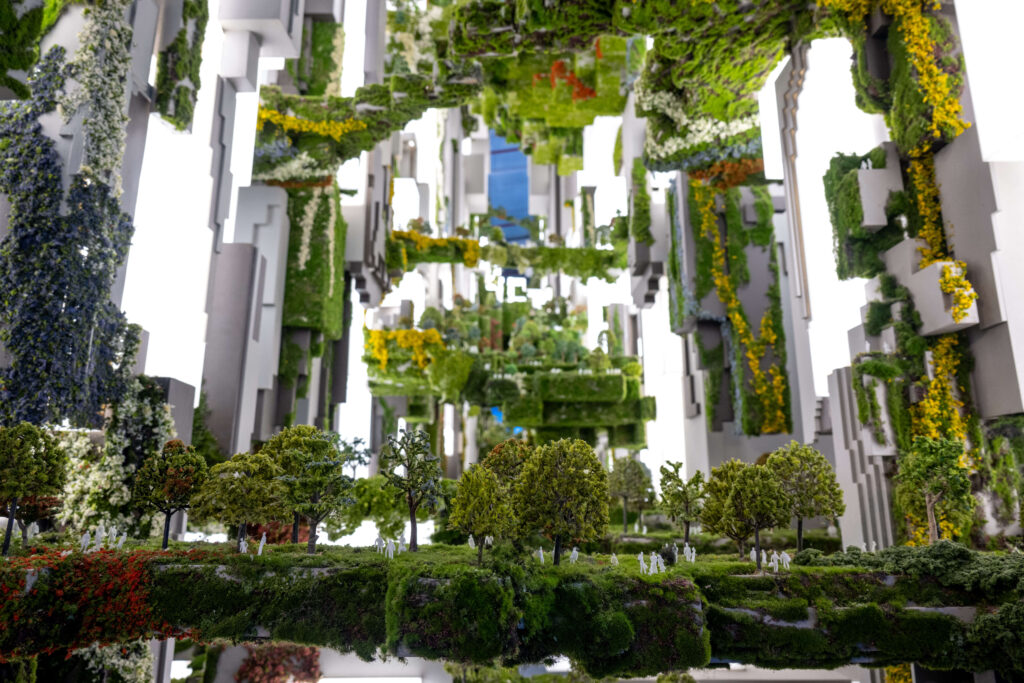
Busan in Korea, Riyadh in Saudi Arabia, and Rome in Italy are fiercely competing to host the venue until the end. Saudi Arabia is by far the country that has received the most attention in the competition for the venue of the 2030 Expo. The fact that a country with a heavy and hard image, which has long been known as a “conservative Islamic suzerain state,” is putting a lot of effort into attracting open international events such as expos is considered new. Until now, ‘Saudi = International Event’ has been a difficult formula to be established.President Yoon Suk Yeol, who made a state visit to Saudi Arabia last month, is taking a commemorative photo prior to a pleasant talk with Crown Prince Muhammad bin Salman al-Saud at the Riyadh Guest House. Currently, South Korea and Saudi Arabia are fiercely competing to host the 2030 Expo.It has already been revealed in many areas that Saudi Arabia is serious about hosting the 2030 Expo.

At the competition presentation (PT) for the 2030 Expo held in Ishire Moulino near Paris in June, many “real figures” such as foreign minister Faisal bin Farhan Al Saud (prince), Saudi ambassador to the U.S. Lima Bint Bandar Al Saud (princess), investment minister Khalid al-Faleh and Riyadh Mayor Ibrahim al-Sultan were presenters. At the time, a Middle East expert evaluated, “People with the most global careers in the Saudi royal family seem to have taken the lead in attracting the 2030 Expo.”Even in recent years, Saudi Arabia has been appealing for a “vote” by offering large-scale development loans and aid funds to African countries.Of course, in Korea, the desire for Busan to be selected as the venue is the strongest. The Korean government and the business community also entered the competition relatively late, but they have been making all-out efforts to attract the 2030

Expo.However, thanks to the closed image of “the land of oil” and “the holy site of Islam,” the international community’s interest in Saudi Arabia continues in the race to host the 2030 ExpoSaudi Arabia’s efforts to host the 2030 Expo include Crown Prince Muhammad bin Salman Al Saud, the next Saudi king and known as “Mr. Everything.”Prince Muhammad has emphasized that he will improve the constitution of Saudi Arabia’s economy, which is currently thoroughly dependent on oil, by 2030 through his mid- to long-term economic and social development plan, Vision 2030.For Saudi Crown Prince Muhammad bin Salman al-Saud, 2030 is expected to be a time to announce the achievements of his planned economic and social development plan, Vision 2030. If the 2030 Expo is hosted, the event is likely to be wrapped up as an event to mark the finale of “Vision 2030.” The Dong-A Ilbo DB
The establishment of a Future Investment Initiative (FII) forum called the “Davos Forum in the Desert,” the massive development of the western region centered on the Neom project, the introduction of tourist visas for ordinary tourists, and the development of the cultural content industry are all policies attempted after Prince Muhammad became a “Saudi heavyweight.” Together, these are measures related to Saudi Arabia’s fostering of the non-oil industry. In particular, the 2030 Expo has a special timing. This is because it can be an event to show off the results of the reform and opening that Prince Muhammad has promoted, internally and externally, that is, the success of Vision 2030. It is also meaningful that if the 2030 Expo is held in Saudi Arabia, Crown Prince Muhammad is likely to appear at the event as king. Prince Muhammad’s father, King Salman bin Abdulaziz Al Saud, is 88 years old now.

It is difficult for Saudi Arabia to enjoy great economic effects only by holding the 2030 Expo.However, Saudi Arabia, which is working hard to attract foreign companies and investments, needs to properly recognize that it is a “country that meets global standards” and a “good country to do business.” And hosting an expo is very helpful in creating this national brand. Recently, Saudi Arabia has been actively asking global companies in the United States, Europe, and Japan, including major Korean companies, to establish local R&D and production facilities. As in the past, the company is changing its strategy to “buy technology, facilities, and manpower from foreign companies when needed with money from selling oil (or order projects).” This includes the intention to revitalize the activities of outstanding overseas personnel in the country by attracting companies and investments and create quality jobs for their own people.A bird’s-eye view of “Oxagon” by the Neom project.

Saudi Arabia, which is trying to reduce its dependence on the oil industry, hopes to attract a variety of foreign companies and investments in the future. Saudi Arabia plans to create a high-tech science and technology industrial complex called Oxagon in Neom City. However, it is not yet well understood that long-term business activities in Saudi Arabia, where not only alcohol, but also popular culture and international events cannot be enjoyed properly. Above all, Saudi Arabia is not attractive in attracting excellent overseas manpower.Saudi Arabia’s most important thing for economic development is to maintain corporate and investment, and to do so, it is necessary to increase the country’s attractive assets, he said. “Hosting international events, including expos, can also help raise the level of national brand and culture, and further develop software capabilities necessary to create a business-friendly environment.”In fact, Saudi Arabia has hosted a number of international events in addition to the 2030 Expo. It has already hosted the 2029 Winter Asian Games (Neom City) and the 2034 Asian Games (Riyadh). The World Cup will also be held in Saudi Arabia in 2034. Attracting the 2030 Expo can be a meaningful growth engine for fostering the tourism industry, which accounts for a large portion of Neom City and Western development projects.
JENNIFER KIM
US ASIA JOURNAL



